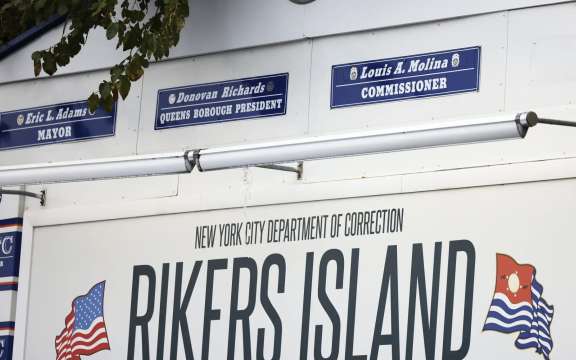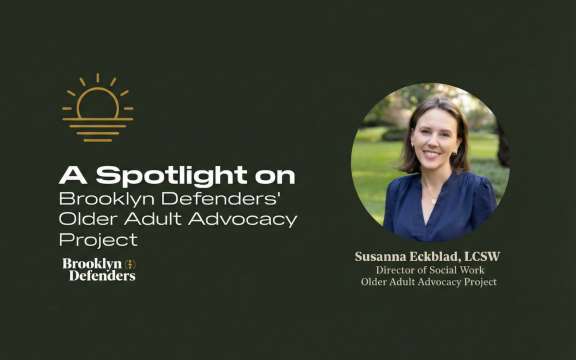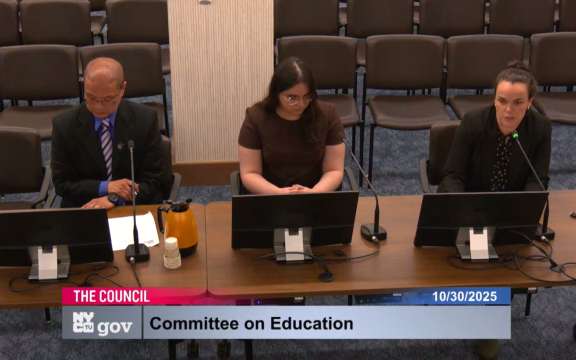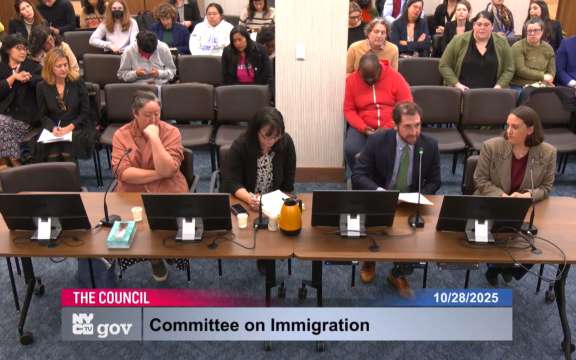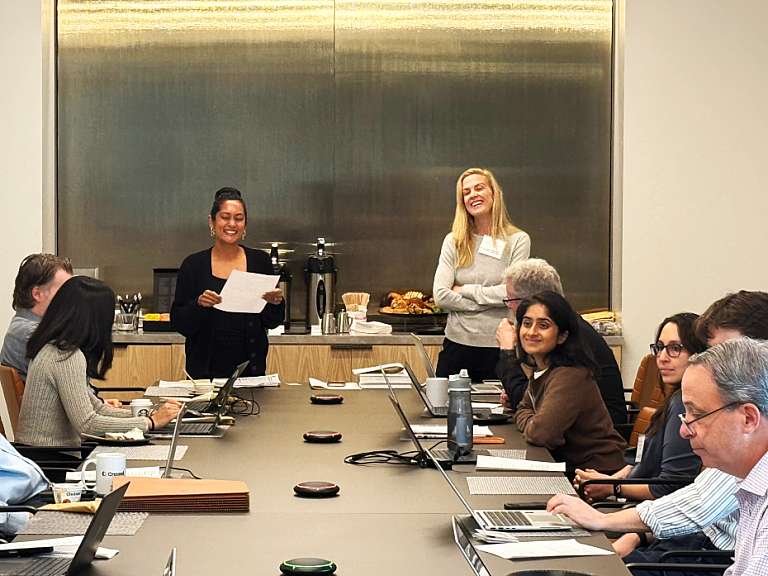BDS Testimony Presented before New York City Council on Housing Disparities Facing Immigrant New Yorkers
TESTIMONY OF:
Alexandra Dougherty,
Senior Staff Attorney and Policy Counsel, Civil Justice Practice Written with
Catherine Gonzalez,
Senior Staff Attorney and Policy Counsel, Immigration Practice
BROOKLYN DEFENDER SERVICES
Presented before
The New York City Council Committee on Immigration
Jointly with the Committee on Housing and Buildings Oversight Hearing on Housing Disparities Facing Immigrant New Yorkers
April 13, 2021
1. Introduction
My name is Alexandra Dougherty, and I am a Senior Staff Attorney and Policy Counsel in the Civil Justice Practice at Brooklyn Defender Services (BDS). I want to thank the Committees on Immigration and Housing and Buildings, in particular Chair Menchaca and Chair Cornegy, for holding this important hearing. I am here today to express our strong support for expanding eligibility for housing subsidies and public benefits for New York City’s immigrant residents.
Brooklyn Defender Services provides multi-disciplinary and client-centered criminal, family, and immigration defense, as well as civil legal services, social work support and advocacy, for nearly 30,000 clients in Brooklyn every year. BDS’ Civil Justice Practice (CJP) aims to reduce the civil collateral consequences for our clients who have had involvement with the criminal, family or immigration legal systems. We also serve our clients with additional civil legal needs, such has accessing and maintaining public benefits, obtaining critical repairs, and reclaiming seized property. Even a minor housing or benefits issue, if unaddressed, can have insurmountable repercussions for our clients and their families who are often navigating legal issues in multiple systems. Our expertise lies in the intersection of these legal systems that have historically targeted Black, Latinx and low-income communities and the ways they contribute to the disproportionate rates of unemployment, homelessness and unequal access to education among the communities we serve.
BDS’ immigration practice is a multi-unit practice that works to minimize the negative immigration consequences of criminal charges for noncitizens, represent our clients in applications for immigration benefits and defend our clients against ICE detention and deportation. Since 2009, we have counseled, advised, or represented more than 15,000 clients in immigration matters including deportation defense, affirmative applications, advisals, and immigration consequence consultations in Brooklyn’s criminal court system.
2. Barriers to Housing Facing Immigrant New Yorkers
New York City is the most populated city in the United States and is home to large and growing vibrant immigrant communities. At the same time, it is a city characterized by a long-term affordable housing crisis that has only been exacerbated by the COVID-19 pandemic. Black and Latinx New Yorkers are disproportionately affected by the affordable housing crisis and live with the greatest rent burdens. For Black and Latinx immigrants, the crisis is even more acute.
Immigrant-headed households are more likely to be rent burdened, severely rent burdened, and overcrowded than their nonimmigrant renter counterparts.1 Now, when hundreds of thousands of tenants have lost employment due to COVID-19 and the vacancy rate of the most affordable housing stock is consistently under one percent, the intensifying housing crisis threatens the survival of the City’s immigrant communities.
- Access to benefits
Faced with a dwindling supply of affordable housing, immigrant New Yorkers are further barred from accessing the federal, state, and local benefits that could help secure stable housing. The available public benefits and rental assistance programs in New York have strict eligibility criteria that exclude most non-citizens. NYCHA, for example, is the largest provider of affordable housing in the city, but many immigrant families are excluded due to residency requirements, which permit only households with at least one member who is a citizen or eligible noncitizen. Likewise, many non-citizens are ineligible to receive Public Assistance benefits, and accordingly are unable to access FHEPS or CityFHEPS for critical rental assistance.
Although mixed-status households who have at least one member who is a citizen or eligible non-citizen can access many benefits and subsidized housing, the family will get reduced assistance or be required to pay a pro-rated share of the rent. This complicated system of eligibility rules ultimately results in devastating consequences for immigrant families. Many mixed-status households are forced to choose between an affordable undersized and overcrowded apartment or a safe appropriately-sized home where the family’s insufficient benefits will soon put them at risk of eviction.
- Access to the formal housing market
Many immigrant New Yorkers are barred from the so-called formal housing market because landlords routinely require excessive documentation like proof of credit, state identification, bank account information, and employment and rental history, much of which is impossible to obtain without citizenship or certain legal status. Without this documentation, immigrant New Yorkers resort to informal, unstable, and unsafe housing arrangements.
One BDS client, Ms. G, has consistently tried to get an apartment for herself but has not had a social security number long enough to establish credit. To arrange for housing, Ms. G to illegal subletting, where she has one bedroom to herself in a shared apartment and pays cash to the actual tenant. Ms. G has been feverishly applying for housing lotteries to get a low-rent unit but is unable to provide proof of her previous tenancies (lease, rent receipts, or letters from landlords) when asked.
Non-citizens often find themselves without the identification required by housing applications. Many of the people we serve are unable to access IDNYC or other government-issued IDs because eligibility requires an existing form of identification and proof of residency. Many non- citizens lack the necessary documentation to prove residency, such as bills, leases, bank accounts, or mail.2 In our experience, only people who have access to their original birth certificates and unexpired passports have been able to successfully obtain a NYS driver’s license after passage of the Green Light law. People who have experienced ICE detention or incarceration face additional hurdles to obtaining identification, as many times their documents are confiscated, not returned, or lost in the process. Other times, discrepancies in spellings of names or dates on IDs issued outside of the US make them unusable.
New Yorkers who lack traditional documentation remain stuck without a viable pathway to access housing, employment, or credit. Even with assistance through the application process, it is exceedingly difficult to obtain this documentation without existing identification. When Mr. A applied for IDNYC, he did not have any bills with his name as proof of residency, so he brought a piece of mail sent by our office and another piece of mail to his appointment. Knowing he may experience challenges in the application process, a BDS social worker accompanied him to the appointment. While our social worker was able to provide copies of other pieces of mail— including mail from the IRS and a rental agency—the IDNYC employee refused to accept them and Mr. A’s application was denied.
Without access to this vital documentation, many non-citizens cannot demonstrate eligibility for services like supportive housing, are forced to resort to informal, unstable and unsafe living arrangements. Mr. P, for example, has been a BDS client for about 10 years. Despite living with serious mental illness and receiving consistent mental health treatment, Mr. P does not qualify for affordable housing through the City’s supportive housing services because he has no documentation to prove his immigration status. After his release from ICE detention, Mr. P’s employment authorization card application was erroneously denied, and he remains without proof of his status until that matter is resolved. His BDS attorneys continue to advocate for him on this matter. Although stable housing is essential for Mr. P to manage his mental health, his current arrangement staying with a friend is increasingly precarious. He will soon need to help his friend pay rent, but without his employment authorization card he remains unable to work, and his housing will be disrupted.
- Harassment, discrimination, and fear
Undocumented New Yorkers are at risk of harassment and discrimination based on their immigration status. Many of undocumented New Yorkers experience stigma and live in fear that revealing their status will result in punishment by the government or retaliation by their landlord or lessor.
Frequent and unpredictable changes to immigration policy throughout the Trump Administration stoked fear and uncertainty in immigrant communities. A February 2020 change to the public charge rule, for example, sought to broaden the definition of public charge, making more immigrants ineligible for a green card, visa, or admission based on their family’s receipt of public benefits. Early on, our office saw how the mere proposal of this rule immediately made immigrant families afraid to seek out programs and benefits that support their basic needs. The Department of Homeland Security (DHS) announced in March 2021 that they would no longer enforce the 2020 rule change. Pursuant to the current rule, the use of most public benefits programs, such housing programs, will not have an impact on an individual’s immigration status for purposes of public charge. However, the policy’s “chilling effects” have been devastating to the stability of immigrant families.3 The policy’s impact has been far-reaching, as it led many immigrant families to continue to be afraid to use public programs for basic needs for which they are eligible. The policy also created widespread confusion and general reluctance among our immigrant clients to access life-saving benefits that persists even after these policies have been revoked.
One BDS client, Mr. G, was facing eviction in Housing Court and eligible for CityFHEPS, which would protect his family from eviction and assure affordability going forward. However, he was unwilling to apply because he was fearful that the rules would change again and result in his green card application getting denied based on his family receiving the subsidy. Mr. G’s decision was similar to that of many BDS clients who fear jeopardizing their immigration status.
3. The Impact of the COVID-19 Crisis
The COVID-19 pandemic is exacerbating existing housing problems for our immigrant clients. Many were already afraid of illegal eviction and hesitant to assert their rights in housing court. The pandemic has added job loss, food insecurity, and escalating landlord harassment to this precarious housing situation, all while courts remain closed and tenants feel unable to assert their legal rights. Unlike other vulnerable communities, many immigrant New Yorkers do not have access to the government assistance that could help them survive pandemic job loss and hardship. Undocumented workers and others with jobs in the informal economy have faced difficulty accessing COVID relief programs, such as expanded unemployment insurance. At the same time, immigrant New Yorkers are reeling from the fallout of closed immigration courts and limited and dysfunctional operations of United States Citizenship and Immigration Services (USCIS).
Without access to benefits or programs aimed at financial assistance or canceling rent, clients in already unstable or informal living situations will face self-help evictions or be evicted in holdover proceedings when landlords realize they cannot pay. Ms. R is an undocumented BDS client whose landlord threatened deportation if she did not move out. Although that is illegal harassment, she was afraid to risk further (illegal) repercussions, primarily that her landlord would resort to an illegal eviction rather than waiting for Housing Court to resume operations. She had nowhere else to go and did not want to risk her family’s safety by entering shelter.
Therefore, she chose not to pursue a housing court case against her to stop the harassment. To minimize scenarios like Ms. R’s, access to financial assistance and housing subsidies is necessary for all New Yorkers, regardless of their immigration status.
4. Recommendations
Brooklyn Defender Services supports the preconsidered Resolution calling on the State Legislature to pass, and the Governor to sign, legislation that would expand eligibility for the Disability Rent Increase Exemption to include certain categories of immigrant New Yorkers who are currently excluded.
State and local benefits and housing subsidies should be available for all people regardless of their immigration status. It is especially critical during our current public health crisis that these benefits be made available to all of those in need. However, these programs are narrow and only available to tenants in rent regulated or subsidized apartments who are either disabled or seniors.
Few, if any, of our clients would be affected by this change. As we described above, many of our clients, like many immigrant New Yorkers, have no choice but to rent unregulated apartments and accept informal living arrangements. The City can and should go beyond asking state legislature to act and should instead take action to ensure that all New Yorkers, regardless of income and immigration status, have access to safe, affordable, and permanent housing.
In addition to the resolution being considered today, we respectfully offer the following recommendations:
- Expand eligibility for CityFHEPS and public assistance, regardless of immigration status. Instead of enforcing barriers to existing housing subsidies and vouchers, the City should be funding more accessible and better vouchers so that more tenants can secure and remain in affordable housing. Similarly, the City should be removing barriers to accessing and maintaining public benefits and grants so that New Yorkers in crisis have a real social safety net.
- Replicate the SCRIE/DRIE structure on the local level by providing landlords with tax abatements to freeze rent at an affordable level for income-qualifying immigrant New Yorkers. There is no justification for limiting access to affordable housing to disabled and senior New Yorkers.
- Expand affordable housing options for immigrant New Yorkers beyond the immediate emergency of the COVID-19 pandemic. New York could replicate a model implemented in Oakland, CA in which local financial institutions provide zero interest loans specifically intended to help recipients build credit. Programs like this seek to address underlying problems barring immigrant tenants from stable housing.
- Expand documents accepted for IDNYC proof of identify.4 Lack of access to photo identification creates a barrier to services for many immigrant New Yorkers. While both the City and State have taken steps to reduce barriers to getting an ID, required documentation can be impossible to provide for residents who are excluded services. Lowing barriers to obtaining IDNYC will in turn remove barriers from other services.
- Expand eligibility for supportive housing and services, regardless of immigration status. Expanding eligibility for supportive housing through New York’s Single Point of Access (SPOA) Program would non-citizen New Yorkers remain connected to the treatment and stability they require.
- Continue to fund civil legal services for low-income New Yorkers. In addition to City Council funded Right to Counsel in Housing Court, we urge the City to continue to invest in and fully fund civil legal service providers that support New Yorkers before their housing situation escalates to housing court.
5. Conclusion
BDS will be celebrating 25 years since we opened our doors and began representing clients in Brooklyn. We have worked to protect the rights of the people in our communities every day since, but the Council continues to play a critical role in safeguarding New York City’s immigrant community. As the devastating consequences of the COVID-19 pandemic continue to disproportionately affect low-income immigrant New Yorkers, we urge the City to consider the recommendations outlined above.
We thank the City Council for the opportunity to testify today and for your continued support of low-income immigrant New Yorkers. If you have any questions or concerns, please do not hesitate to contact me at adougherty@bds.org.
1 52% of immigrant-headed NYC households are rent burdened and 24% are severely rent burdened, as opposed to 42% and 17% of nonimmigrant-headed households. Likewise, 15.9% of immigrant-headed households are overcrowded (defined as more than one person per room), as opposed to only 9.6% of all households. Protecting Immigrant Homes: The importance of strengthening and expanding tenant protections for immigrant New Yorkers, Make the Road New York, April 2019.
2 See list of accepted Identity and Residency Documents available at
https://www1.nyc.gov/site/idny...
3 In 2020, the Urban Institute found that approximately one in seven adults in immigrant families (13.6%) reported that they or a family member avoided public benefit programs, such as Medicaid, CHIP, SNAP, or housing assistance, because of concerns about future green card applications. Among families in which one or more members did not have a green card, the chilling effect was more severe - more than one in four (27.7%) adults in these families reported avoiding benefits because of green card concerns. See Hamutal Bernstein, Michael Karpman, Dulce Gonzalez, and Stephen Zuckerman, Urban Institute, “Immigrant Families Continued Avoiding the Safety Net during the COVID-19 Crisis” February 2021, available at https://www.urban.org/sites/default/files/publication/103565/immigrant-families-continued-avoiding-the-safety-net- during-the-covid-19-crisis.pdf
4 Some examples documents that could be accepted as proof of identity are jail identification cards, medical records from jails, Immigration and Customs Enforcement (ICE) release paperwork, Department of Homeland Security Order of Supervision Program (OSUP) and Intensive Supervision Appearance Program (ISAP) documentation, and proof of a pending application with United States Citizenship and Immigration Services, such as a Form I-797 Receipt Notice.
